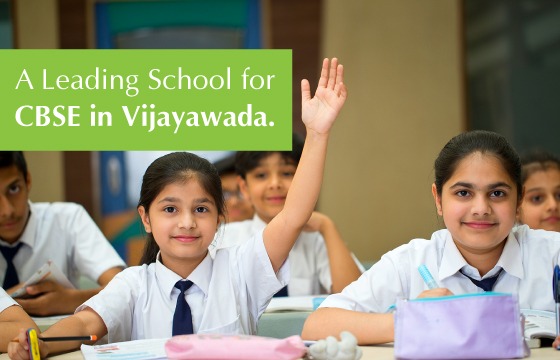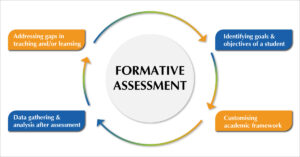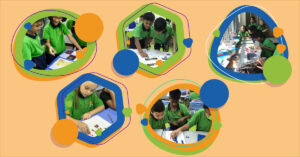

The journey of education is incomplete if not accompanied by continuous assessment. It is that essential process that enables students to evaluate their learnings, across scholastic and extra-curricular fields. In earlier times, institutions adopted a set pattern of conducting examinations at the end of a certain period and how much progress a student had made depended on his or her scores.
Even today, examinations, albeit more practical oriented, are conducted at the conclusion of the academic session, also known as summative assessment. However, educators have realized that in-process appraisal of a student’s comprehension is as important as an end-term evaluation to determine a child’s overall progress. This process is called formative assessment in which teachers are able to identify areas students are struggling to understand and subjects they are finding difficult to learn, parallel to regular classes.
Studies have shown that effective formative assessment boosts a child’s learning capacity and overall academic achievement. It also allows teachers to relook at their style of teaching to match each student’s learning needs. For better differentiation, we can think of formative assessment as when a chef tastes the soup, whereas summative assessment is when the customer tastes it and gives feedback.
At GIG International School, the best international school near you in Vijayawada, this assessment model is being led successfully by the teachers across grades. With formative assessment initiatives, teachers are able to fill gaps and make improvements in their instruction methods. Here are some unique methods that schools are adopting for formative assessment: –

Many global schools, including GIG International School, Vijayawada, have customized their curriculum by replacing long classroom hours with more student projects. These can be hands-on practical or field research.
Since these projects are carried out during an ongoing session, it gives educators an opportunity to review each student’s level of understanding way before exams. Such practical based learning helps determine whether students are able to arrive at the destination of learning, achieving the milestones set by the educator at the beginning of the session.
Continuous feedback is as important as uninterrupted learning. Exit slips, are quite useful as they allow teachers to collect feedback from the students at the end of every class and address their concerns. These slips are usually designed like a feedback form, having a combination of descriptive responses, multiple choice questions and different rating scales to give students the freedom to express the difficulties they faced during the class.
Another benefit of an exit slip is that it acts as a litmus test to determine the efficacy of any new learning framework introduced in the classroom. You can compare this with how you would try out new product before taking it home with you.
Students spend a considerable amount of time with their classmates. They can as well help and support each other in their growth and improvement in class. By evaluating work of their peers, students are also able to build a sense of trust, confidence, healthy competition and mutual respect – values that make an individual ready to succeed in a dynamic team-based environment within the professional space.
One interesting peer-to-peer assessment exercise is the Jigsaw technique. Just the puzzle game, each class is broken into groups of six to eight students and provided with different set of problems to solve. At the end of each exercise, students score each other’s answers and analyze their understanding of the concept.
Teaching students to assess their own performance can go a long way. Healthy self-assessment gives students greater power of their learning and inculcates a feeling of responsibility towards fulfilling their academic objectives.
Amongst the effective ways of self-evaluation, which can also be conducted as a group assessment, is concept mapping. Just like “connecting the dots” in your child’s drawing book, a concept map gives a larger picture of a student’s comprehension and interest of a subject. Students begin with a core concept and start building a cloud of relevant sub-topics around it. The “heavier” the concept-cloud is, deeper is the student’s understanding for the course material.

Formative assessment is closely related to our frameworks of independent learning at GIG International School, Vijayawada. Our teachers are specially trained to closely observe each student’s learning graph in tandem with the classroom lessons. Our assessment processes, whether summative or formative, include proactive testing methods.
GIG International School, Vijayawada, the best international school near you, is open for admissions Pre-KG onwards. Connect with our counsellors today!